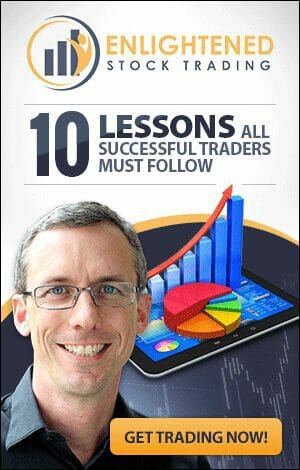We discover what makes great traders tick! My ‘10 Trading Questions With…’ guest today is Richard Weissman, Trader, Educator and Author of two outstanding trading books: Mechanical Trading Systems: Pairing Trader Psychology with Technical Analysis and Trade Like a Casino: Find Your Edge, Manage Risk, and Win Like the House.
What is it about trading that gets you up and motivated in the morning?
I like the process of developing and implementing systems: developing rules of risk management, position management and so on. It’s intellectually satisfying to develop models, test them and then see them actually working in the real world.
How did you first get involved with the financial markets?
In 1987 my Father and I formed a corporation and purchased a seat on the floor of the New York Futures Exchange. I never was a scalper, which of course was the big advantage in owning a seat. Nevertheless, I did get to see a wide variety of trading styles and personalities by being on floor.
More importantly, I quickly learned that this was a risk management career and that survival was directly related to how disciplined you were in controlling the downside.
What was the turning point that really propelled you towards trading success?

It was a multi-phase process. The thing that enabled my survival was the development of (and adherence to) risk management rules. But the shift from survival to success was the development of models that capitalized on asymmetries in market behaviour (models that identify high probability, low risk, high reward scenarios.
Example: A model that enters in the direction of the long-term trend as defined by the 200-day SMA, waits for a pullback in that trend as defined by the 9-day RSI being under 35 and exits into new cycle highs/lows – this would be high probability since you are trading in the direction of the long-term trend (high probability that the long-term trend is still dominant), low risk since you waited for a pullback and high reward. Obviously this example isn’t a “complete system” since I haven’t included stop-loss rules, but you get the general idea.
What are your personal trading goals?
To keep my worst peak-to-valley drawdown less than 7.5% and to have a CALMAR ratio of anywhere from 2.50 to 3.50.
What trading mistake have you learned the most from?
Trading without a detailed plan including risk management, when to move stops, when to take partial profits. Without such a plan, you will inevitably be buying houses, cars and so on for the traders that do have such a plan.
What are the main trading strategies and markets that you trade?
I trade around 25 different futures contracts in all major asset classes (Equity Indices, FX, Interest Rates, Metals, Energy and Agriculturals). My strategies are all trying to capitalize on the cyclical nature of volatility in the swing trading timeframe (2-10 trading days, although if the market is really trending in theory I could end up holding a position beyond the ten day definition of “swing trading”).
What 1-3 trading books should every trader read?

The Trading Quiz today!
- Jack Schwager, Market Wizards;
- Edwin Lefevre, Reminiscences of a Stock Operator;
- Mark Douglas, Trading in the Zone
[Editor’s Note: I am also a huge fan of Richard’s first book – Mechanical Trading Systems. Reading it was a key turning point for me in understanding how to match my trading psychology to a style of trading system that would work for me. Check out my review here – A.R.]
If you had 1 minute with someone who wants to learn how to trade in stocks, what would you say?
Be like the house at the casino:
- Develop a positive expectancy trading model (like the probability skew enjoyed by the house);
- Develop rules of risk management (like the table limits implemented by the house);
- Have the discipline to adhere to the model during drawdowns
What separates the average from the very best traders?
Average traders lose everything and move on to other endeavours. Only the very best traders survive in the long run.
How do you ensure your trading will continue to be successful in the future?
The simple answer is by managing the risk and adhering to the rules of my positive expectancy model. That stated, of course I’m always testing new models in hope of adding another arrow to my quiver.
Bonus Question: If you were not a trader, what would you do?
Well I already do these things: I teach trading and risk management, I write books do lots of research.
Richard Weissman’s Bio:
Mr. Weissman is a professional trader with over twenty five years’ experience. He has provided private consultations and training to traders and risk managers for twenty years. In addition to trading, Weissman serves as a Senior Associate with the Energy Management Institute where he teaches trading and risk courses which are co-sponsored by CME Group and Intercontinental Exchange. Weissman’s first book, Mechanical Trading Systems was published by John Wiley & Sons in 2004. His second book, Trade Like a Casino: Find Your Edge, Manage Risk, and Win Like the House was selected as a Finalist for the Technical Analyst 2012 Book of the Year Award.
More Trader Interviews:
- 10 Trading Questions With…Ray Barros
- 10 Trading Questions with…Paul King
- 10 Trading Questions with…Malcolm Stacey
- 10 Trading Questions With…Michael Gouvalaris
- 10 Trading Questions With…Steve Ruffley
- 10 Trading Questions with…Van Tharp
- 10 Trading Questions With…Robert Carver
- 10 Trading Questions with…Richard Weissman
- 10 Trading Questions with…Jack Schwager
- 10 Trading Questions With…Adrian Reid



